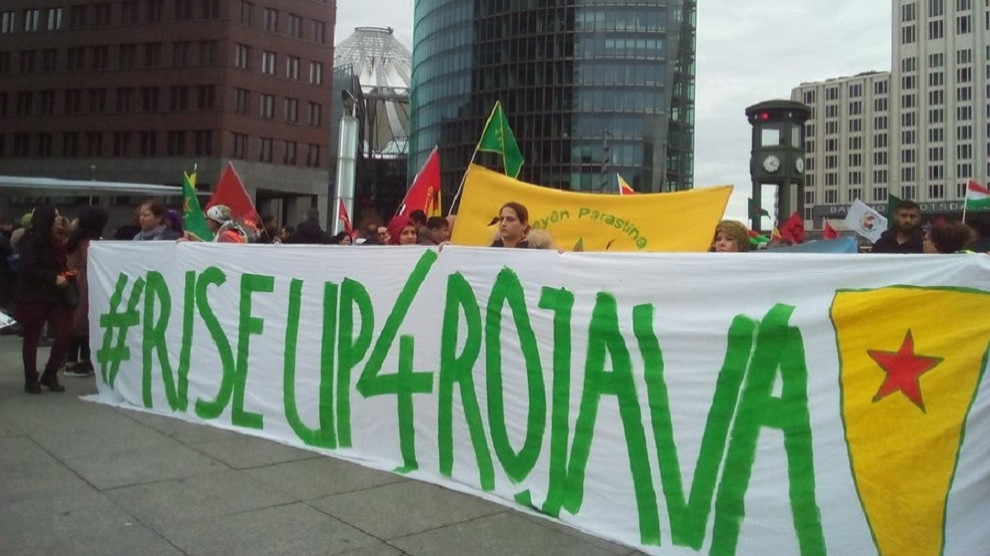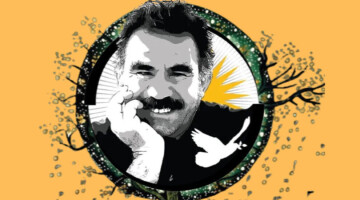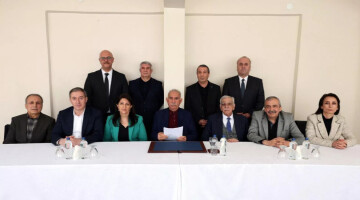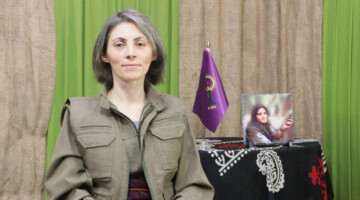RiseUp4Rojava has issued a call to invite people around the world to join the week of activities and international resistance to be held between 1 and 8 November.
The week actually begins with the celebration of World Kobanê Day (1 November) and from 2 to 5 November, the campaign calls on everyone to “highlight the struggles and goals that unite us and move us globally, and that strengthen the common alliance in our diversity. Let us together, from 6 to 8 November, disturb - blockade - occupy in a decentralised way the places of international cooperation and support of the Turkish state.”
RiseUp4Rojava calls for "a week of solidarity, a week of strengthening the antifascist struggle globally, a week of civil disobedience against fascist rule, capitalist exploitation and imperialist devastation of our livelihoods!”
World Kobanê Day and the revolution in Rojava
The call opens with the following remarks: “On 1 November 2014, millions of people around the world took to the streets to express their solidarity with the heroic resistance of Kobanê.
Millions of women and men, old and young, progressive people of different political colours, united in their diversity, stood resolutely at the side of the people of Rojava and testified their support in the fight against the barbarity of the murder gangs of the Islamic State. The world held its breath and watched attentively as the fighters of the Women's and People’s Protection units, YPJ and YPG, stood in the way of the darkness, and defended humanity house by house, street by street, in Kobanê.
With the resistance of Kobanê, which was to become the beginning of the end of the self-proclaimed caliphate, a global movement of solidarity, resistance and common struggle began to grow, which today organises itself across all borders and defends its hope. The revolution of Rojava became the hope and inspiration for people and struggles worldwide, because then as now, there is more defended in Rojava than just the land, the cities and the villages. With the Autonomous Administration, the societies of Northern Syria created a living example of a free and democratic future for the Middle East, beyond local despotism and foreign domination. On the basis of the equal coexistence of all residing population groups, the liberation of women, an ecological and needs-oriented way of life and economy, and an unprecedented form of radical democracy, an alternative system to solve the crisis is flourishing in Northern Syria, amidst the chaos, destruction and suffering of war.”














